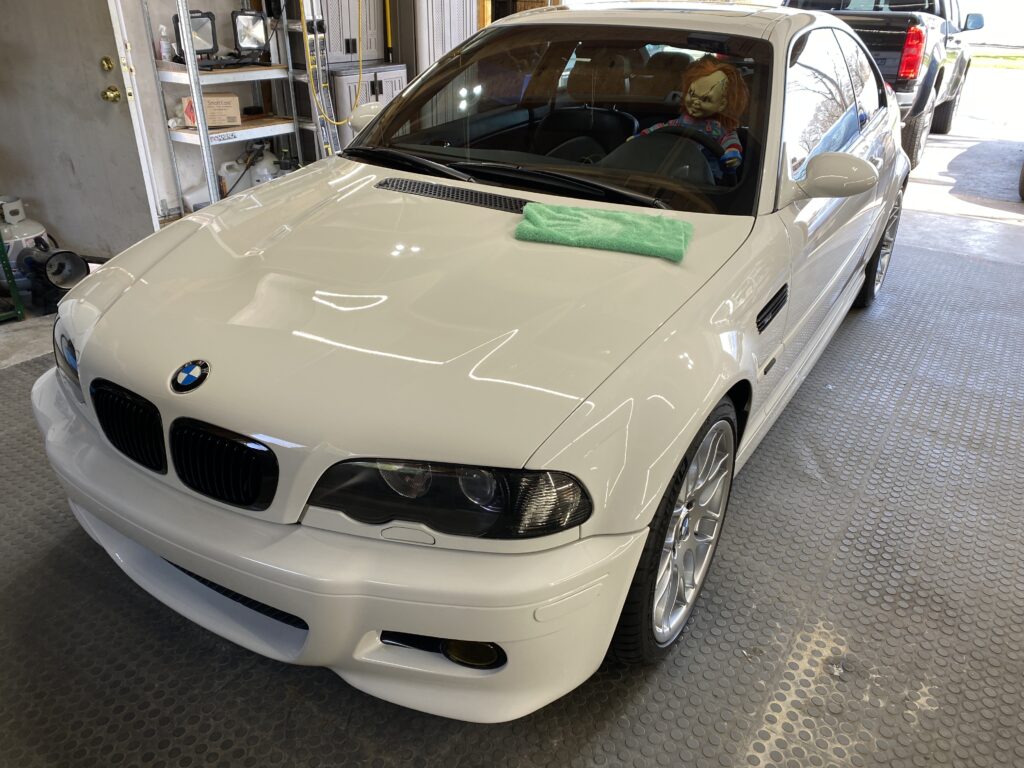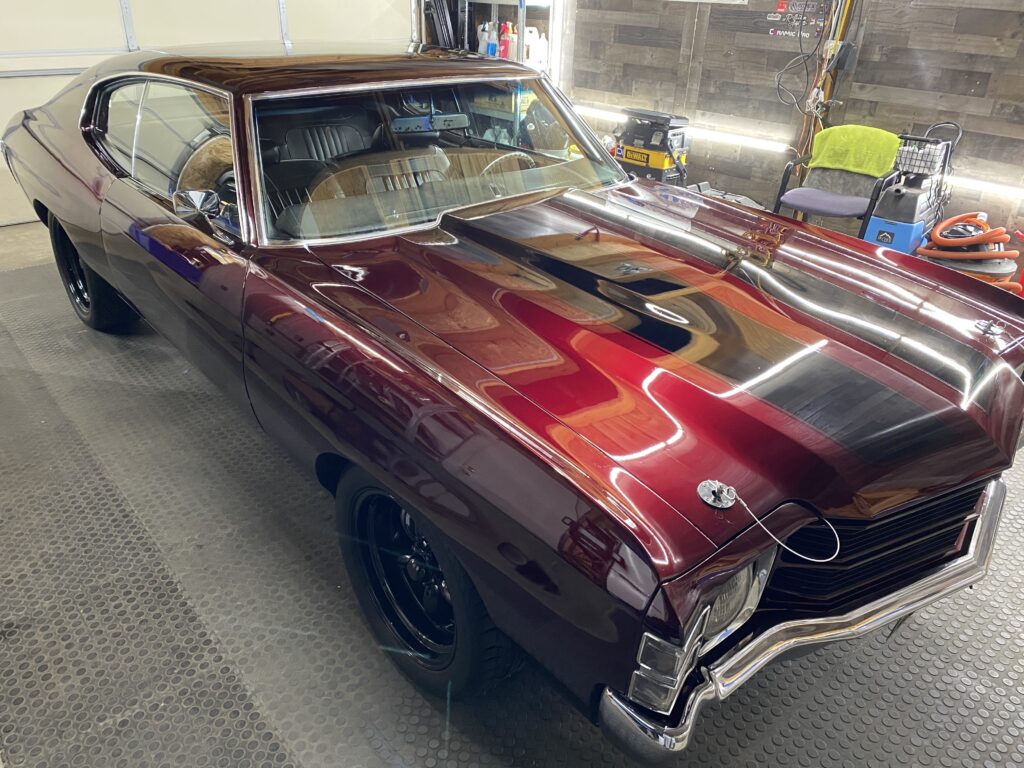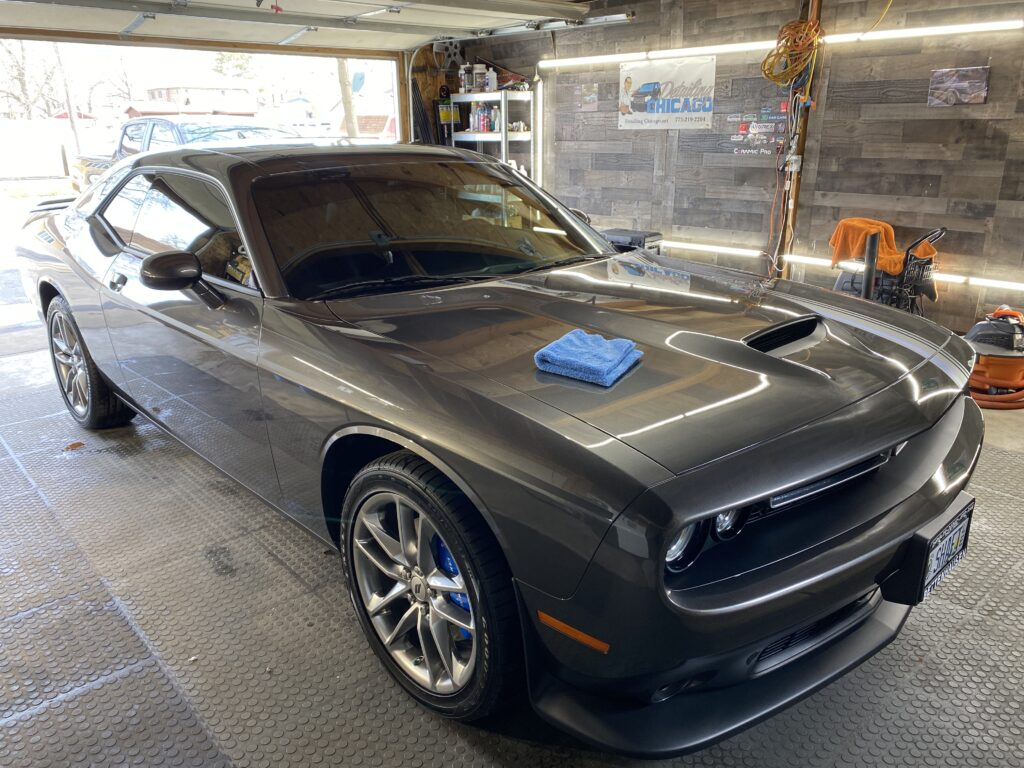The car just doesn’t shine the same anymore…
When you first purchased your car it had a gleaming new looking fresh paint job. The shiny appearance of your paint, on the other hand, can fade as your car ages. Flaws and blemishes can appear on the exterior after a while.



What is the process of Paint Correction?
The paint correction process carries out in one, two, or three phases, one being the most aggressive. The type and condition of your vehicle’s paint will determine which stage will provide the best treatment.
Stage 1
Stage 1 uses a heavy cutting compound and pad combination. when needed spot wet sanding for more substantial scratches is suitable for cars with solid swirl marks, scratches, and other paint defects.
Stage 2
It involves using a less harsh compound and pad combination and is suitable for cars with moderate swirl marks and light scratches.
Stage 3
Polishing the paintwork in a single stage or step with only one type of polish and pad combination is best for a car with good paintwork with no apparent swirls and only mild marring. It entails buffing the paintwork with a fine finishing polish and polishing pads, although it is usually insufficiently abrasive to remove swirl marks and scratches.
FAQs
Does paint correction remove the clear coat?
A grainy substance called a cutting compound is used in the polishing process. When you turn on the electric polisher, the polish liquid or paste is evenly disseminated throughout the vehicle’s painted surface, causing friction to cut through the transparent layer, removing slight amount of clear coat to level the paintwork.
How long should paint correction take?
It is mainly dependent on the state of your paint. Minor paint correction can take as little as one day. Still, more significant modifications for excessively weathered and faded paint might take as long as 2-3 days yes, that’s up to 30 hours of polishing, refining, and finishing for one car.
Do new cars need paint correction?
Only a 1 stage fix is required for 90% of new automobiles. However, a small percentage of cars will require far more thorough polishing due to dealership damage or demanding paintwork either too soft or too hard with embedded contaminants.

What does Paint Correction mean?
The act of correcting defects in a vehicle’s finish and restoring it to a better than new condition is known as paint correction. Swirl marks, automated vehicle wash marring, fine scratches, wet spots, and bird droppings created by improper washing techniques are examples of these flaws.
Machine polishers and various polishes and graded pads are used to repair paint. A fully corrected car will only show accurate reflections when viewed in direct sunshine, with no swirl marks, scratches, or defects discernible to the human eye.
How can Paint Correction benefit you ?
The most apparent advantage of paint correction is that your vehicle will appear better. A skilled paint correction procedure will remove unsightly flaws and restore your car’s appearance. A paint repair can fix your car’s clear coat, which gives it that perfect sheen and removes scratches and marring.
Paint correction can also help your vehicle’s paint job last longer. The restoration process and a sealant or ceramic coating will assist in extending the life of your factory paint and protect it from the weather. If a professional automotive paint correction follows good maintenance techniques, your paintwork will endure even longer.
